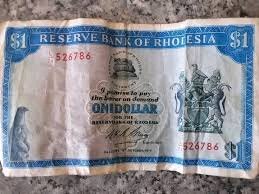CHIVI SOUTH legislator Killer Zivhu (Zanu-PF) feels the government and the Reserve Bank of Zimbabwe (RBZ) must investigate circumstances resulting in the current cash crisis in the formal banking system, yet it is readily available in the informal market.
Government could also consider reducing import duty and placing basic goods on the open general import licence to discourage smuggling, he said.
Zivhu said this will also protect ordinary people from wild price increases by bulk importers, mostly well-placed people who easily access import licences.
Bond notes continue to lose value on the black market, with rates at the weekend hitting the 100% mark against the US dollar while the Botswana pula and the South African rand are trading at 15% and 12% against the surrogate currency, prompting inevitable price increases.
Speaking to journalists at Beitbridge yesterday, Zivhu, who also leads the Cross-Border Traders' Association, believes regularising the money changers' sector could cure cash shortages and help end huge discrepancies in cash exchanges.
"The government and the central bank must investigate why there is money on the black market and not in banks. Who is putting the money there? Is there no other way we can solve this crisis?" he asked.
"The current situation is killing the ordinary person because they cannot access cash. Cross-border traders are not spared because they buy goods in foreign currency, but can only sell in in bond notes or transfers losing out on exchange rates," he said.
Money changers at Beitbridge, Musina, Park Station in Johannesburg and various other towns wield bundles of crisp bond notes suspected to have been corruptly disbursed from banks.
"It is easier to mobilise a million dollars here at Beitbridge as we speak, but people spend days on end in bank queues to withdraw small amounts. How is the black market getting this money?"
Zivhu said blaming Zimbabwean problems on sanctions was outdated, adding innovation must take over.
Zimbabwe has since 2000 been under sanctions after the compulsory land acquisitions meant to address land imbalances viewed, however, as having been done out of political spite and in a disorderly fashion.
That, coupled with drought and corruption, has seen the country rated among the poorest in the world despite abundant human and natural resources.
"We have to be creative and find ways of getting round the problem. We are alone in this," Zivhu said.
He said there should be attempts to formalise the money changers by grouping them so that they run bureau de changes.
"That sector now employs so many people and formalising it will help control different percentages of exchange," he said.
New Finance and Economic Development minister Mthuli Ncube has hinted at abolishing the bond notes.
Chinese investors have also been accused of fuelling the black market rates as many of them do not use the formal banking sector to export US dollars to their countries.
- newsday
 Zimbabwe launches new airline
Zimbabwe launches new airline  Hichilema meets Chivayo
Hichilema meets Chivayo  Millions celebrate Diwali festival in India
Millions celebrate Diwali festival in India  SA bitcoin firm mulls Zimbabwe listing
SA bitcoin firm mulls Zimbabwe listing  Gold edges up as traders await guidance
Gold edges up as traders await guidance  Airlink applies for Lanseria to Harare, Bulawayo route
Airlink applies for Lanseria to Harare, Bulawayo route  Young Investment Professional (YIP) Graduate Programme 2019
Young Investment Professional (YIP) Graduate Programme 2019 











 Young Investment Professional (YIP) Graduate Programme 2019
Young Investment Professional (YIP) Graduate Programme 2019
Editor's Pick